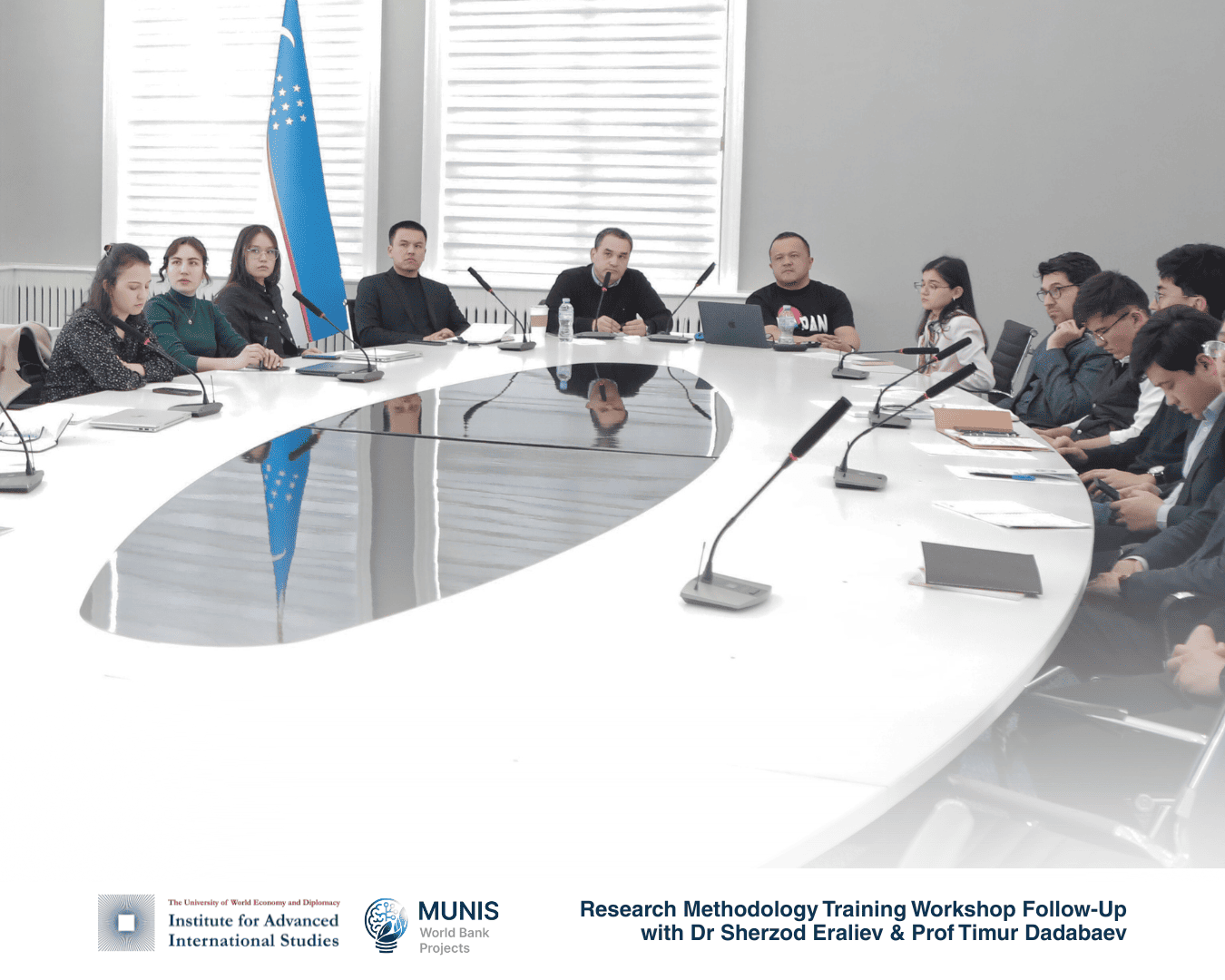
On 17–18 April 2025, IAIS’s international consultant under its MUNIS-supported institutional modernization project, Prof Timur Dadabaev of the University of Tsukuba and UWED, led the second phase of the Research Methodology Training Workshop, with Dr Sherzod Eraliev joining online to provide expert commentary and feedback. This follow-up to the successful 11–12 April sessions built directly on the “Building Institutional Capacity for Sustainable Futures” roadmap, further embedding best practices in scholarly research and publication among IAIS researchers and UWED students.
Dr Eraliev and Prof Dadabaev opened proceedings by revisiting the foundations of academic writing, guiding participants through the methodology of writing academic papers, from defining intellectual dilemmas and structuring essays to formulating testable hypotheses and situating arguments within broader theoretical debates. Attendees deepened their understanding of the seven-stage research process, while critiquing sample manuscripts and refining their own research questions.
Building on this, he also examined interviewing and surveying techniques tailored to the Central Asian context. Drawing on oral history projects and migration-survey case studies, speakers demonstrated how semi-structured and focus-group interviews can elicit nuanced narratives, and how online surveys and big-data feeds complement traditional fieldwork. Participants analyzed methodological trade-offs and discussed ethical safeguards essential for research in sensitive environments.
On the next day, the workshop shifted to writing style and academic approaches. Through close readings of model essays, participants mastered techniques for crafting compelling introductions, developing coherent body paragraphs, addressing counterarguments and concluding with policy-relevant insights. Interactive exercises challenged researchers to apply these conventions to their own drafts, ensuring clarity of argument and consistency in citation practices.
Dr Eraliev’s online contributions enriched each session. He offered targeted advice on strengthening theoretical frameworks, enhancing methodological transparency and positioning Uzbek scholarship for publication in high-impact international journals. In real-time Q&A segments, he guided attendees on navigating peer review, responding to reviewer feedback and leveraging global networks to maximize research visibility.